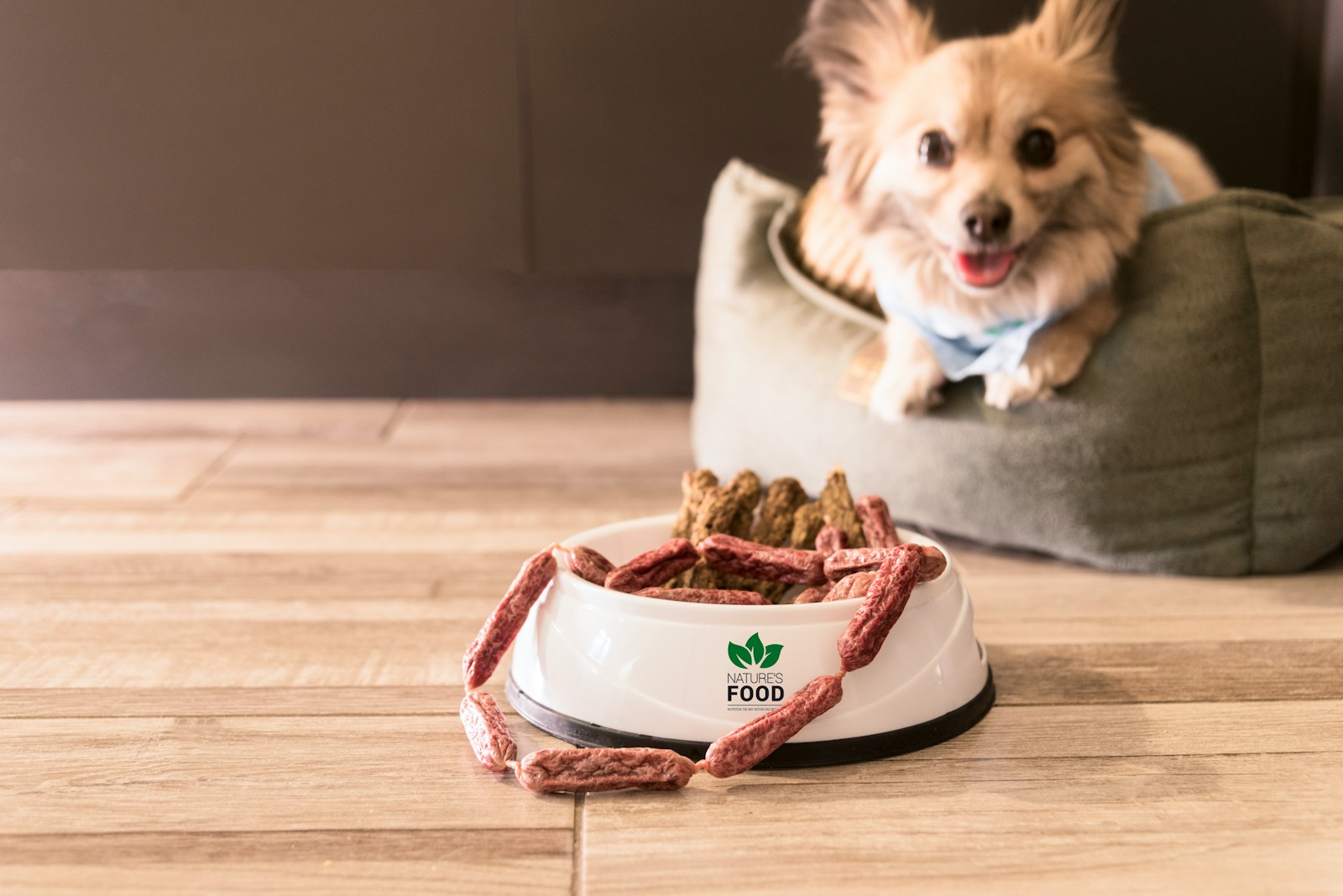Does your furry friend struggle with upset stomachs, loose stools, or frequent digestive issues? You’re not alone. Many pet parents face the challenge of finding the right nutrition for dogs with sensitive digestive systems. The solution often lies in choosing highly digestible dog food specifically formulated to support healthy digestion while providing complete and balanced nutrition.
Understanding what makes dog food easily digestible can transform your pet’s health and quality of life. Dogs with sensitive stomachs require special attention to their diet, and the right food can eliminate gastrointestinal issues while ensuring they receive all essential nutrients. This comprehensive guide will help you navigate the world of digestible dog foods, understand what ingredients to look for, and make informed decisions about your dog’s dietary needs.
From identifying the signs of digestive sensitivity to selecting the best highly digestible dog food options for your canine companion, we’ll cover everything you need to know about supporting your dog’s digestive health through proper nutrition.
Understanding Digestive Sensitivity in Dogs
Digestive sensitivity affects millions of dogs worldwide, manifesting through various uncomfortable symptoms that can significantly impact their overall well-being. Dogs with sensitive stomachs often experience recurring digestive issues that require careful dietary management to maintain optimal health.
Common Signs of Digestive Sensitivity
Pet owners should watch for several key indicators that suggest their dog may benefit from highly digestible dog food. Frequent loose stools, chronic diarrhea, excessive gas, and abdominal pain are primary symptoms. Many dogs also exhibit vomiting episodes, loss of appetite, or visible discomfort after eating. Some canines may show signs of food sensitivities through skin irritation, excessive scratching, or changes in coat quality.
Causes of Digestive Issues
Multiple factors contribute to digestive sensitivity in dogs. Food allergies and intolerances rank among the most common causes, often triggered by specific protein sources or artificial additives. Stress, sudden dietary changes, and underlying medical conditions can also disrupt normal digestive function. Senior dogs and certain breeds may be predisposed to gastrointestinal issues, making them particularly vulnerable to digestive upset.
The Impact on Overall Health
Poor digestive health extends beyond stomach discomfort. Dogs struggling with chronic digestive issues may experience nutritional deficiencies, weakened immune systems, and decreased energy levels. The constant inflammation in their digestive tract can affect nutrient absorption, leading to deficiencies that impact their skin, coat, and overall vitality.
What Makes Dog Food Highly Digestible
Highly digestible dog food is specifically formulated to minimize stress on your pet’s digestive system while maximizing nutrient absorption. Understanding the key components that contribute to digestibility helps pet parents make informed choices about their dog’s nutrition.
Quality Protein Sources
The foundation of highly digestible dog food lies in its protein content. Easily digestible proteins come from high-quality sources like chicken meal, fish meal, and novel proteins such as duck or venison. These protein sources are processed to break down complex structures, making them easier for sensitive digestive systems to process. Unlike chicken by-product meal, which may contain inconsistent protein quality, premium protein sources ensure consistent digestibility and nutritional value.
Beneficial Carbohydrates
Carbohydrate selection plays a crucial role in digestibility. Ingredients like brown rice and sweet potato provide gentle, easily processed energy sources that don’t irritate sensitive stomachs. These complex carbohydrates break down slowly, providing steady energy while supporting healthy blood sugar levels. They also contain natural fiber that promotes healthy digestive function without causing excessive gas or bloating.
Limited Ingredient Formulations
Many highly digestible dog foods feature limited ingredient lists to reduce the likelihood of adverse reactions. By minimizing the number of ingredients, manufacturers can eliminate common allergens and irritants while focusing on essential nutrients. This approach helps identify specific food sensitivities and provides relief for dogs with multiple dietary restrictions.
Prebiotics and Probiotics
Advanced digestible dog foods often include prebiotics and probiotics to support healthy gut bacteria. These beneficial additions help maintain a balanced digestive environment, improve nutrient absorption, and strengthen the immune system. The combination of prebiotics and probiotics creates an optimal environment for healthy digestion and can significantly reduce digestive issues over time.

Photo by Jamie Street on Unsplash
Key Ingredients to Look For
Selecting the best dog food for sensitive stomachs requires careful attention to ingredient quality and composition. Understanding which ingredients promote healthy digestion can help you choose products that will benefit your dog’s specific needs.
Premium Protein Sources
Look for dog foods that list specific, high-quality protein sources as the first ingredient. Chicken meal, salmon meal, and turkey meal are excellent options because they’re concentrated protein sources with moisture removed. These ingredients provide essential amino acids while being easier to digest than whole proteins. For dogs with protein sensitivities, novel protein sources like lamb, duck, or fish can provide alternatives that reduce the risk of allergic reactions.
Digestive Support Ingredients
Several ingredients specifically support digestive health in sensitive dogs. Pumpkin provides natural fiber and helps regulate digestion, while sweet potato offers gentle carbohydrates and beneficial nutrients. Beet pulp, when properly processed, serves as a prebiotic fiber source that supports healthy gut bacteria. These ingredients work together to create an optimal digestive environment.
Omega Fatty Acids
Essential fatty acids, particularly omega-3 and omega-6, support overall digestive health and reduce inflammation throughout the body. Fish oils, flaxseed, and canola oil provide these beneficial fats while supporting healthy skin and coat. For dogs with sensitive stomachs, these ingredients can help reduce inflammation in the digestive tract and promote healing.
Natural Preservatives
Highly digestible dog foods should use natural preservatives like mixed tocopherols (vitamin E) and ascorbic acid (vitamin C) instead of artificial preservatives. Chemical preservatives can irritate sensitive digestive systems and may contribute to food sensitivities. Natural preservation methods maintain food safety while being gentler on your dog’s system.

Photo by Priscilla Du Preez 🇨🇦 on Unsplash
Ingredients to Avoid
Understanding which ingredients can trigger digestive issues is just as important as knowing what to include in your dog’s diet. Certain components commonly found in commercial dog food can exacerbate sensitivity and cause ongoing digestive problems.
Artificial Additives and Preservatives
Artificial colors, flavors, and preservatives rank among the most problematic ingredients for sensitive dogs. These synthetic compounds serve no nutritional purpose and can trigger allergic reactions or digestive upset. BHA, BHT, and ethoxyquin are chemical preservatives that should be avoided in favor of natural alternatives. Artificial flavors and colors may seem harmless but can contribute to food sensitivities and behavioral issues in some dogs.
Low-Quality Protein Sources
By-product meals and unnamed meat sources can cause digestive issues due to their inconsistent quality and processing methods. Chicken by-product meal may contain parts that are difficult to digest, while generic “meat meal” provides no information about the protein source or quality. These ingredients often lack the nutritional consistency needed for dogs with sensitive digestive systems.
Common Allergens
Corn, wheat, and soy are frequent allergens that can trigger digestive issues in sensitive dogs. These ingredients are often used as inexpensive fillers but provide little nutritional value while potentially causing inflammation. Many dogs with food sensitivities show improvement when these common allergens are eliminated from their diet.
Table Scraps and Human Food
While not technically dog food ingredients, table scraps and human food can severely disrupt the digestive balance in sensitive dogs. Foods high in fat, spices, or sugar can cause immediate digestive upset and may contribute to long-term sensitivity issues. Maintaining a consistent, appropriate diet is crucial for managing digestive sensitivity.
Types of Highly Digestible Dog Food
The pet food market offers several formats of highly digestible options, each with unique benefits for dogs with sensitive stomachs. Understanding the differences between these options helps pet parents choose the most appropriate format for their dog’s specific needs and preferences.
Wet Dog Food Options
Wet food offers several advantages for dogs with digestive sensitivity. The higher moisture content aids digestion and helps prevent dehydration, which can be particularly beneficial for dogs experiencing digestive upset. The softer texture requires less mechanical digestion, reducing stress on the digestive system. Many high-quality wet foods also feature limited ingredient formulations specifically designed for sensitive stomachs.
The cooking process used in wet food production often breaks down proteins and carbohydrates more thoroughly than dry food processing, making nutrients more readily available for absorption. This pre-digestion effect can significantly benefit dogs with compromised digestive function or those recovering from gastrointestinal illness.
Dry Dog Food Benefits
High-quality dry food formulated for digestive sensitivity offers convenience and dental benefits while maintaining nutritional integrity. Modern processing techniques create highly digestible dry foods that retain essential nutrients while eliminating problematic ingredients. The crunchy texture can help maintain dental health, though this benefit should be weighed against your dog’s specific digestive needs.
Dry food often provides better value for pet owners feeding larger dogs or multiple pets. Storage is more convenient, and the longer shelf life reduces waste. Many premium dry foods designed for sensitive stomachs include probiotics and prebiotics that survive the manufacturing process to support digestive health.
Prescription Diet Options
Veterinary prescription diets represent the most specialized category of highly digestible dog food. These therapeutic formulations are designed to address specific medical conditions and are typically recommended for dogs with severe digestive issues, chronic gastrointestinal diseases, or complex food allergies.
Prescription dog food undergoes rigorous testing and quality control measures to ensure consistent digestibility and therapeutic benefits. These diets often feature hydrolyzed proteins, which are broken down into smaller components that are less likely to trigger allergic reactions. While more expensive than commercial options, prescription diets can provide significant relief for dogs with serious digestive sensitivity.
Feeding Guidelines for Sensitive Dogs
Proper feeding practices are just as important as food selection when managing digestive sensitivity. How you feed your dog can significantly impact their digestive comfort and overall success with a new diet.
Transition Strategies
Introducing new food requires a gradual transition to prevent digestive upset. Start by mixing 25% of the new highly digestible dog food with 75% of the current food for 3-4 days. Gradually increase the proportion of new food while decreasing the old food over 7-10 days. This slow transition allows your dog’s digestive system to adapt to the new ingredients and reduces the risk of gastrointestinal upset.
Monitor your dog closely during the transition period for any signs of digestive distress. If symptoms occur, slow the transition process or consult your veterinarian for guidance. Some dogs with severe sensitivities may require even longer transition periods or alternative approaches.
Portion Control and Feeding Frequency
Dogs with sensitive stomachs often benefit from smaller, more frequent meals rather than large portions once or twice daily. Dividing the daily food allowance into 3-4 smaller meals reduces the digestive workload and can minimize symptoms like bloating and discomfort. This approach also helps maintain steady blood sugar levels and can improve nutrient absorption.
Use measuring cups or a kitchen scale to ensure consistent portion sizes. Overfeeding can overwhelm sensitive digestive systems and negate the benefits of highly digestible food. Follow feeding guidelines on the food package as a starting point, but adjust portions based on your dog’s body condition, activity level, and individual needs.
Creating a Feeding Routine
Consistency in feeding times helps regulate your dog’s digestive system and can reduce anxiety-related digestive issues. Establish regular meal times and stick to them as closely as possible. A predictable routine allows your dog’s body to prepare for digestion and can improve overall digestive efficiency.
Create a calm, quiet feeding environment free from distractions or competition with other pets. Stress during eating can contribute to digestive problems, so ensuring a peaceful mealtime atmosphere supports the benefits of highly digestible food.
Special Considerations for Different Life Stages
Dogs’ digestive needs change throughout their lives, and these changes become more pronounced in animals with sensitive stomachs. Understanding how age affects digestion helps pet parents make appropriate dietary adjustments to support their dog’s health at every life stage.
Puppies with Sensitive Stomachs
Young dogs with digestive sensitivity require special attention to ensure proper growth and development. Puppy-specific highly digestible formulations provide the increased calories and nutrients needed for growth while being gentle on sensitive systems. The higher calorie density in puppy foods means smaller portions can meet nutritional needs without overwhelming the digestive system.
Puppies may experience temporary digestive sensitivity during weaning or when switching between foods. Their developing digestive systems are more susceptible to upset, making high-quality, easily digestible nutrition crucial during this vulnerable period. Consistent feeding schedules and gradual dietary changes are particularly important for sensitive puppies.
Adult Dogs with Ongoing Sensitivity
Adult dogs with established digestive sensitivity benefit from consistent, long-term dietary management. Once you identify a highly digestible dog food that works well for your pet, maintain consistency to prevent digestive upset. Adult dogs with sensitive stomachs often require lifetime dietary management to maintain optimal health and comfort.
Regular monitoring of body condition and digestive health helps identify any changes that might require dietary adjustments. Adult dogs with digestive sensitivity may need periodic veterinary evaluations to rule out underlying medical conditions and ensure their nutritional needs are being met.
Senior Dogs and Digestive Changes
Older dogs commonly develop digestive sensitivity as their systems become less efficient at processing nutrients. Senior dogs may benefit from easily digestible proteins, increased fiber content, and additional digestive support ingredients. The aging process can affect enzyme production and gut health, making highly digestible nutrition increasingly important.
Senior dogs often have concurrent health conditions that can affect digestion, such as kidney disease or arthritis medications that irritate the stomach. Coordinating dietary management with overall healthcare becomes crucial for maintaining quality of life in older dogs with sensitive digestive systems.
Brand Recommendations and Quality Indicators
Selecting high-quality dog food brands that specialize in digestive health requires understanding what distinguishes premium products from standard commercial options. Several key factors indicate whether a dog food brand prioritizes digestibility and quality nutrition.
Reputable Manufacturers
Look for companies with strong reputations in pet nutrition and specific experience formulating foods for sensitive stomachs. Established brands often invest in research and quality control measures that ensure consistent product quality. Companies that employ veterinary nutritionists and conduct feeding trials demonstrate a commitment to scientific nutrition principles.
Research the manufacturer’s history, recall records, and transparency about their ingredient sourcing and manufacturing processes. Companies that provide detailed information about their facilities, quality control measures, and nutritional philosophy typically produce higher-quality products.
Quality Certifications and Standards
Premium dog food brands often exceed minimum industry standards and pursue additional certifications that demonstrate quality commitment. Look for products manufactured in facilities that follow human food safety standards or have achieved specific quality certifications. Some brands conduct independent testing for contaminants and publish these results for transparency.
AAFCO (Association of American Feed Control Officials) nutritional adequacy statements ensure that foods meet minimum nutritional requirements. However, for dogs with sensitive stomachs, seek products that exceed these basic standards and include specific digestive support features.
Reading and Understanding Labels
Product labels provide crucial information about ingredient quality and suitability for sensitive dogs. The ingredient list appears in descending order by weight, so the first few ingredients represent the majority of the food’s content. Look for specific, high-quality protein sources rather than generic terms like “meat” or “poultry.”
Guaranteed analysis panels show minimum and maximum levels of key nutrients, but they don’t reveal ingredient digestibility or quality. Marketing claims on packaging should be supported by specific ingredients and scientific research rather than vague promises about digestive health.
Monitoring Your Dog’s Progress
Successfully managing digestive sensitivity through diet requires ongoing observation and adjustment. Tracking your dog’s response to highly digestible dog food helps ensure the chosen diet continues to meet their needs and provides optimal health benefits.
Signs of Improvement
Positive changes in digestive health typically become apparent within 2-4 weeks of starting a highly digestible diet. Look for firmer, more consistent stools, reduced gas production, and decreased episodes of vomiting or diarrhea. Many dogs also show increased energy levels and improved appetite as their digestive comfort improves.
Other indicators of dietary success include healthier skin condition, shinier coat quality, and better overall demeanor. Dogs experiencing digestive relief often become more active and playful as they feel more comfortable. Weight stabilization or appropriate weight gain in underweight dogs also indicates successful dietary management.
When to Consult Your Veterinarian
Some situations require professional veterinary guidance despite dietary improvements. Persistent symptoms after 4-6 weeks on a highly digestible diet may indicate underlying medical conditions that require diagnosis and treatment. Blood in stool, severe weight loss, or signs of dehydration warrant immediate veterinary attention.
Regular veterinary check-ups help monitor your dog’s overall health and ensure dietary management remains appropriate. Your veterinarian can assess body condition, discuss any concerns, and recommend adjustments to the feeding plan if needed. Dogs with complex medical histories may require specialized prescription diets that only veterinarians can recommend.
Long-term Dietary Management
Successful management of digestive sensitivity often requires long-term commitment to appropriate nutrition. Once you identify a highly digestible dog food that works well for your pet, consistency becomes crucial for maintaining digestive health. Avoid frequent diet changes that could disrupt the digestive balance you’ve achieved.
Plan for situations that might affect your dog’s diet, such as travel, boarding, or food availability changes. Having backup options and maintaining emergency supplies of your dog’s regular food prevents forced dietary changes that could trigger digestive upset.
Frequently Asked Questions
How long does it take to see improvement with highly digestible dog food?
Most dogs with sensitive stomachs begin showing improvement within 1-2 weeks of starting a highly digestible diet, with significant changes typically visible by 4-6 weeks. However, the timeline varies depending on the severity of sensitivity and underlying causes. Dogs with food allergies may require longer to show improvement as their systems heal from chronic inflammation.
Can I mix different brands of highly digestible dog food?
While possible, mixing different brands of highly digestible dog food isn’t recommended for dogs with sensitive stomachs. Each brand has unique formulations, and combining them can introduce inconsistencies that may trigger digestive upset. Stick with one high-quality brand that works well for your dog to maintain digestive stability.
Is homemade food better than commercial highly digestible dog food?
Homemade diets can be beneficial for dogs with severe food sensitivities, but they require careful planning to ensure complete and balanced nutrition. Commercial highly digestible dog foods are formulated by pet nutrition experts and undergo testing to ensure nutritional adequacy. Unless supervised by a veterinary nutritionist, homemade diets often lack essential nutrients or proper balance.
How do I know if my dog needs prescription dog food instead of over-the-counter options?
Dogs with severe, persistent digestive issues that don’t respond to high-quality commercial foods may benefit from prescription diets. If symptoms continue after 6-8 weeks on a highly digestible commercial diet, consult your veterinarian about therapeutic food options. Prescription diets are specifically formulated for medical conditions and may provide relief when other options fail.
Can puppies eat the same highly digestible food as adult dogs?
Puppies have different nutritional requirements than adult dogs and need puppy-specific formulations to support proper growth and development. Many manufacturers offer highly digestible puppy formulas that provide appropriate nutrition for growing dogs with sensitive stomachs. Using adult food for puppies can result in nutritional deficiencies that affect development.

Photo by Real Natures Food on Unsplash
Top Highly Digestible Dog Foods and Brand Options
Providing your dog with highly digestible food is essential for their overall health and well-being, especially for pets with sensitive stomachs or dietary restrictions. Here is a list of seven top highly digestible dog foods and brands to consider:
Hill’s Science Diet Sensitive Stomach & Skin
Crafted to support digestive health and nourish the skin, this formula is made with high-quality, easily digestible ingredients.
Visit Hill’s website to purchase
Royal Canin Gastrointestinal Low Fat Dog Food
Designed for dogs with digestive issues, this veterinarian-recommended food provides tailored nutrition for sensitive stomachs.
Visit Royal Canin’s website to purchase
Blue Buffalo Basics Limited Ingredient Diet
A limited-ingredient diet perfect for dogs with food sensitivities, crafted with a single animal protein source and easily digestible carbohydrates.
Visit Blue Buffalo’s website to purchase
Purina Pro Plan Sensitive Skin and Stomach
Combining highly digestible ingredients with prebiotic fiber, this formula supports both digestion and gut health for your dog.
Visit Purina’s website to purchase
Wellness Simple Limited Ingredient Diet
Using a limited number of carefully selected ingredients, this food is an excellent option for dogs with food sensitivities or allergies.
Visit Wellness’s website to purchase
Natural Balance L.I.D. Limited Ingredient Diets
This formula features digestible ingredients that promote healthy digestion and balanced nutrition with minimal risk of allergens.
Visit Natural Balance’s website to purchase
Nutro Ultra Weight Management Adult Dog Food
Made with high-quality, whole-food ingredients, this formula is not only digestible but also supports weight management and overall health.
Visit Nutro’s website to purchase
By choosing one of these highly digestible dog foods, you can ensure your pet receives the nutrition they need in a way that’s easy on their stomach. Always consult your veterinarian before making any significant diet changes for your dog.
Supporting Your Dog’s Digestive Journey
Managing digestive sensitivity through proper nutrition represents a significant step toward improving your dog’s quality of life and overall health. Highly digestible dog food offers hope for pet parents struggling with their dog’s chronic digestive issues, providing scientifically formulated solutions that address both immediate symptoms and long-term health needs.
The journey to finding the perfect highly digestible dog food may require patience and careful observation, but the benefits extend far beyond digestive comfort. Dogs with properly managed digestive health experience improved energy levels, better nutrient absorption, stronger immune function, and enhanced overall well-being.
Remember that successful dietary management involves more than just food selection. Proper feeding practices, consistent routines, and ongoing monitoring all contribute to your dog’s digestive success. Working closely with your veterinarian ensures that your approach addresses your dog’s specific needs and any underlying medical conditions that may affect digestion.
Take the first step toward better digestive health for your canine companion by researching high-quality, highly digestible dog food options that meet your pet’s specific needs. Your dog’s comfort and health are worth the investment in premium nutrition designed to support sensitive digestive systems.





